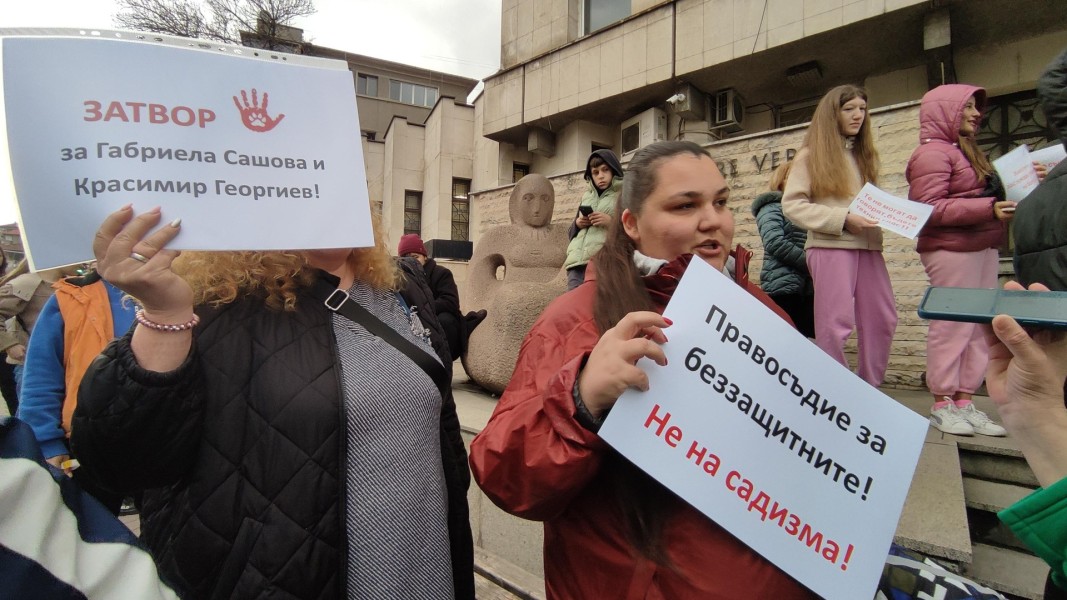Bulgarians have traditionally had a deep respect and gratitude for domestic animals. For generations, horses, oxen, donkeys and cows have been indispensable partners in agricultural life, faithfully assisting people in their daily work. While mechanisation and technological advances have made animals less central to modern farming, the bond between Bulgarians and their domestic animals remains strong. Even without referring to official statistics, everyday observation reveals that most Bulgarian households have a dog or a cat. It is also common for parents to ensure that their children grow up with pets, in the belief that it contributes positively to their moral upbringing and emotional development.
In this way, animals continue to be seen as beloved members of the family. As a result, any report of cruelty toward animals resonates deeply with the public, sparking both pain and outrage.
Amid growing concern, civil society is now calling for more effective law enforcement and immediate action to end violence against animals.


"Unfortunately, the law is not well defined and does not guarantee that those responsible for animal cruelty, as well as causing grievous bodily harm and death to a vertebrate animal, will receive a fair sentence. Everything now depends on the investigating authorities, on the basis of all the evidence that we have gathered in advance, even before the signal was given. And after the perpetrators were arrested, much more evidence was found. We hope that this will provide the best basis for obtaining the maximum sentences for those arrested. The problem is that the provisions in the code are not well formulated - a maximum of 5 years can be imposed as punishment for the two perpetrators".

Bulgaria is currently inundated with protests against unpunished crimes against animals. According to the KAZHI association, a mass protest will take place in Sofia on 12 and 13 April. The reason is that there are still numerous reports of animal abusers who have not received fair punishment. "Not only have they not been convicted, but many of them have not even been investigated by the authorities," says Petya Altimirska.

"In this particular case, we are dealing with several different criminal charges. Not only for mutilating a vertebrate animal, but also for money laundering, criminal association, distribution of pornographic content and so on. There is no precedent for this in Bulgaria.We hope the evidence is strong enough to set an important legal standard. That is why we are following this case very closely and our main appeal to the court, once the perpetrators have been charged, is that the trial should be open to the public. We want people in society to be able to see at first hand how the case is judged, how it is handled and how such perpetrators are punished.
Petya Altimirska's experience with KAZHI points to another important fact that our society should not ignore - behind every known case of brutal violence against children and adults, there is usually a history of violence against animals. Therefore, when people notice such acts of brutality or sadism against animals, they should never remain indifferent. They must report it to the public prosecutor and the Home Office, but they must also insist on a serious investigation into the case.
Unfortunately, at the moment neither the zoo police nor the Interior Ministry authorities have the resources or the competence to respond in time to the wave of reports of uninvestigated violence against animals - says Petya Altimirska, adding that her civic association receives dozens of reports about how some authorities are not doing their job.

"We respond to signals, but we only have the authority when it comes to specific crimes. In those cases, the Criminal Procedure Code applies. As a former member of the Zoological and Canine Police, I conducted numerous inspections where there was evidence that the police authorities had not responded correctly, but in my experience only one case turned out to be justified. All the others were due to exaggerated or unrealistic expectations on the part of the public.


Social Minister Borislav Gutsanov will attend an open lesson today at the Alexander Pushkin Secondary School in Varna, organized by the State Agency for Child Protection. The event is part of the campaign that informs children..
On Monday, it will be mostly cloudy over most of the country and in some places it will rain. The lowest temperatures will be between 4° and 9°C; in Sofia - about 6°C. The highest will be between 13° and 18°C, slightly lower along..
“I am deeply saddened by the news of the horrific missile attack on the center of the city of Sumy on Palm Sunday,” Prime Minister Rosen Zhelyazkov wrote on the social network X. The Prime Minister expressed empathy for the..
Five out of seven paediatricians at the capital's Fifth Multiprofile Hospital for Active Treatment "Knyaginya Klementina" have submitted their resignations..
Public transport workers in Sofia, Varna and Ruse took to the streets of the capital under the slogan “Decent work – decent pay! Without transport there..
Bulgarians, especially young people, need to understand that it is essential to have an employment contract to protect their labour rights, Labour and..

+359 2 9336 661
